Welcome to DU!
The truly grassroots left-of-center political community where regular people, not algorithms, drive the discussions and set the standards.
Join the community:
Create a free account
Support DU (and get rid of ads!):
Become a Star Member
Latest Breaking News
Editorials & Other Articles
General Discussion
The DU Lounge
All Forums
Issue Forums
Culture Forums
Alliance Forums
Region Forums
Support Forums
Help & Search
Anthropology
Related: About this forumBrochs: The mysterious circular symbols of Scotland
By Chris Griffiths
16th September 2022
Hundreds of these ancient stone structures dot the Scottish Highlands, but the true purpose of brochs continues to baffle experts.
Travel north through Scotland's deep glens, its mist and mountains and its velvety moorland and you'll eventually see them: crumbling stone towers rising against the Highland peaks like ancient crag-top castles. These mysterious Iron Age monuments are known as brochs and they exist nowhere else but here. Yet, while these circular dry-walled structures are as symbolic a feature as any in the Scottish Highlands, their purpose remains unknown.
What is known is that around 2,000 years ago, local tribes started harvesting local stone to build massive prehistoric buildings with walls 5m thick and stretching 13m high. To date, anywhere from 100 to 500 broch sites have been identified, with the densest concentration centred in Scotland's northern Caithness and Sutherland counties, as well as the Northern Isles.
- video -
While early archaeologists thought that brochs (whose name derives from the Lowland Scottish word for "fort"
Now, in an effort to better understand the true purpose of these prehistoric towers, an ambitious initiative called the Caithness Broch Project is aiming to reconstruct a full-scale broch from scratch using traditional methods. By relying on archaeological evidence from broch sites and incorporating the same dry-stone masonry techniques Iron Age tribes would have used, builders are aiming to understand whether the organisation of Iron Age Highland societies revolved around brochs or whether brochs evolved to fit the shifting needs of Highland societies.
More:
https://www.bbc.com/travel/article/20220915-brochs-the-mysterious-circular-symbols-of-scotland
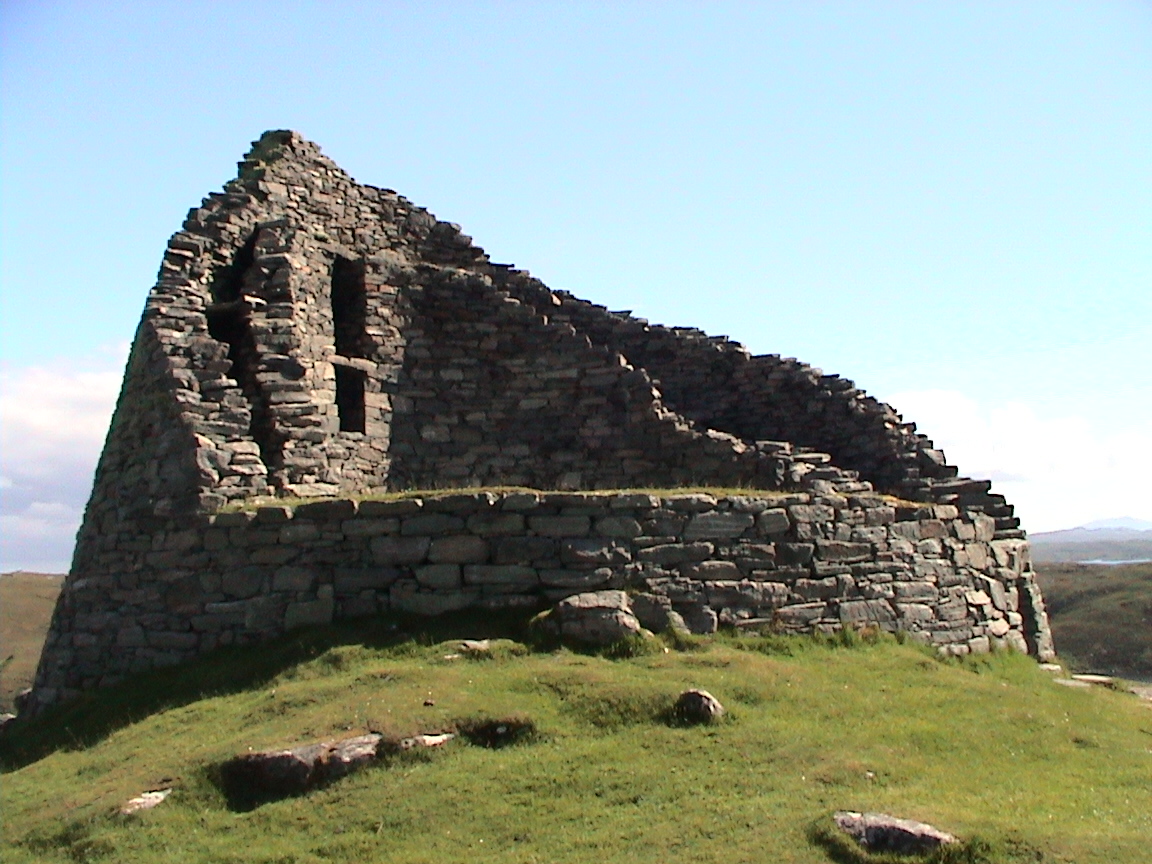
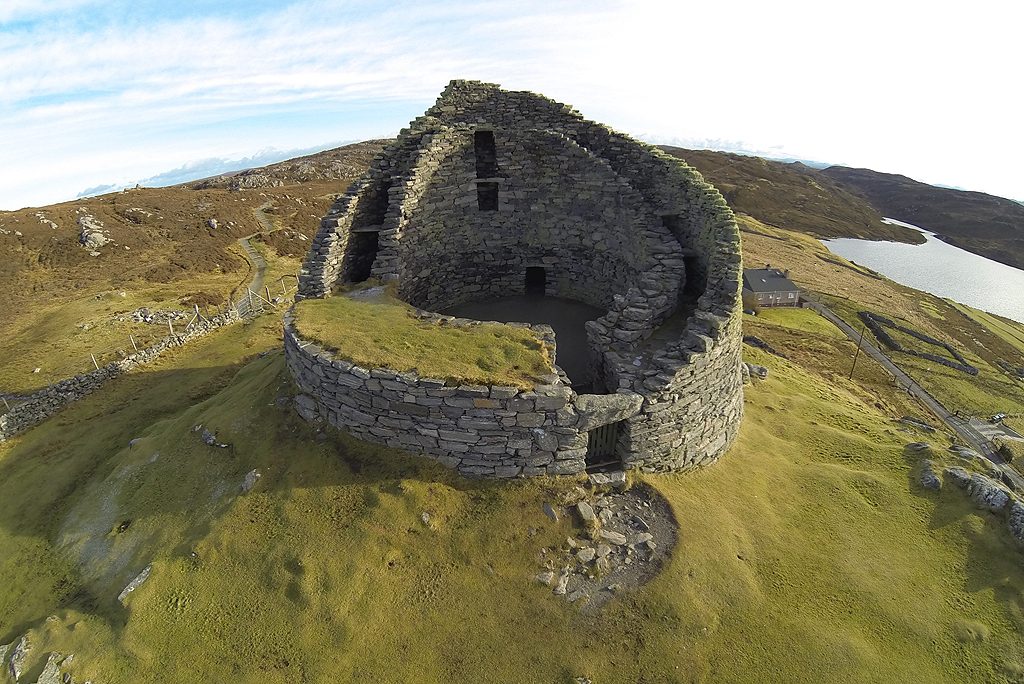
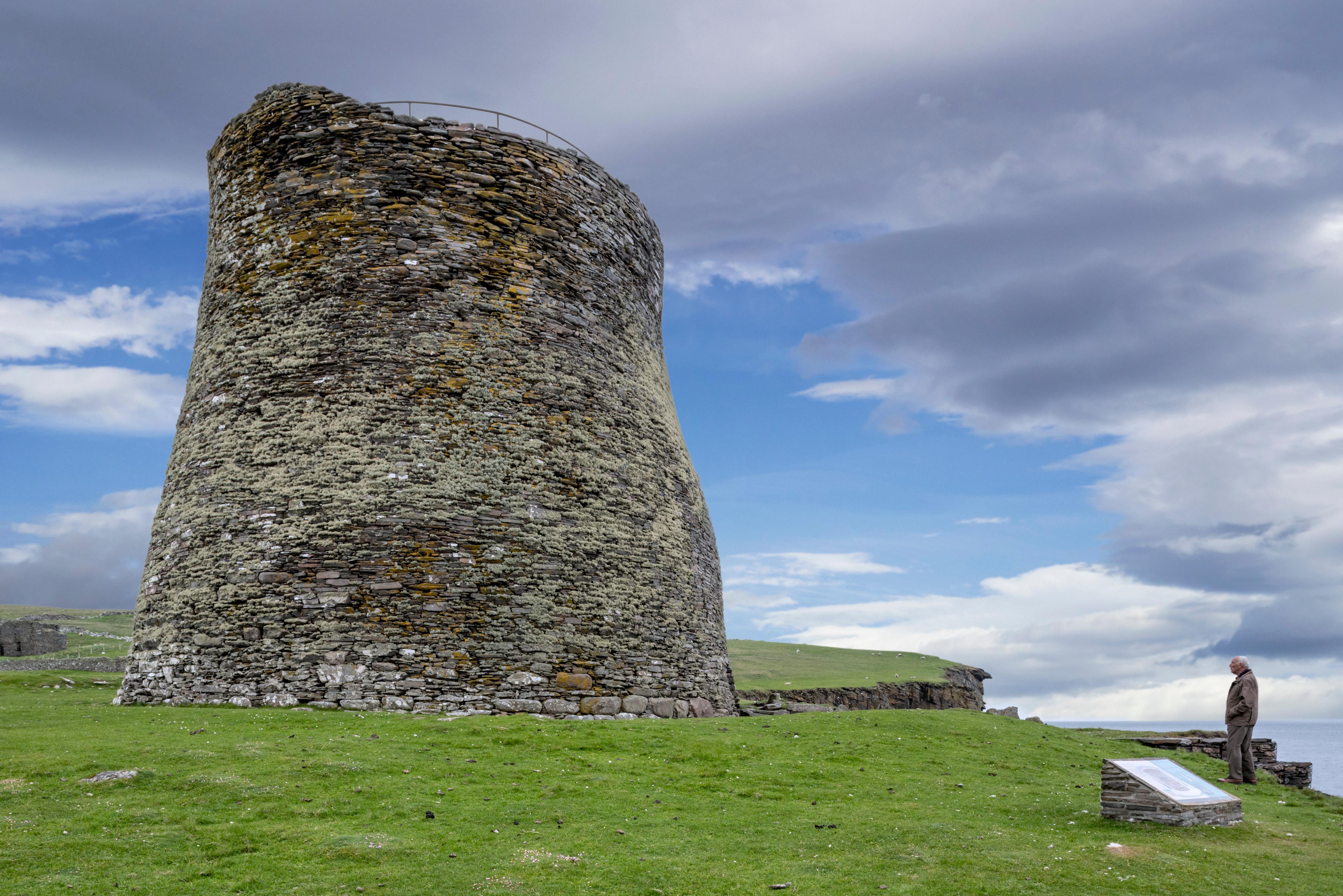
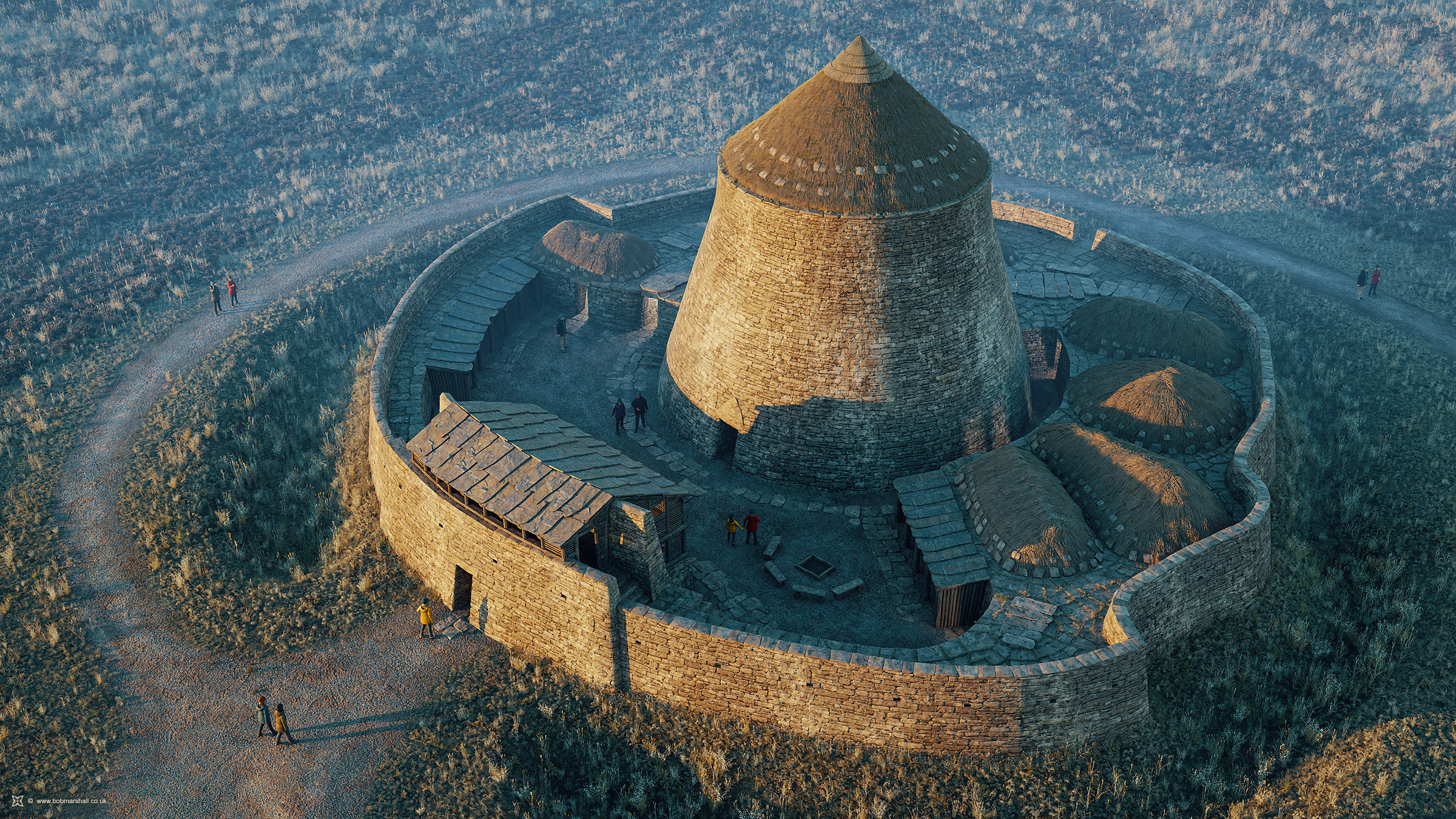

~ ~ ~
Brochs – the Tallest Prehistoric Buildings in Britain
by Ben Johnson
Brochs are mysterious features of Scottish archaeology. These two thousand year old stone structures date from the Iron Age, and it is estimated that at least seven hundred brochs once existed across Scotland. Most are now in a poor state of repair, but the most complete examples can only be said to resemble the cooling towers of modern power stations.
It is only to the north and west of Scotland, and predominant on Orkney, Shetland and the Western Isles, where stone was a more readily available building material than timber, that brochs are to be found. Huge windowless towers, ingeniously engineered, they represent the pinnacle of dry-stone wall building and remain one of the finest construction achievements of Iron Age Europe.
Built during the last few centuries BC and the first few centuries AD, brochs combine features of fort, fortified house, and status symbol, and could feasibly have served several different purposes in different places and at different times.
As a type of fortified house they typically had one, small, easily defended entrance leading to a central inner circular “courtyard”. They were formed by two concentric, dry-stone walls, producing a hollow-walled tower with small rooms and storage areas between. Steps were also built into the gap between the walls providing access to upper wooden platforms. Perhaps not standard living quarters for all; many people would have only taken refuge in the broch when a raiding party was sighted, squeezing some of their valuable livestock into the central courtyard. It is likely that the whole structure would have been topped with a conical, thatched roof.
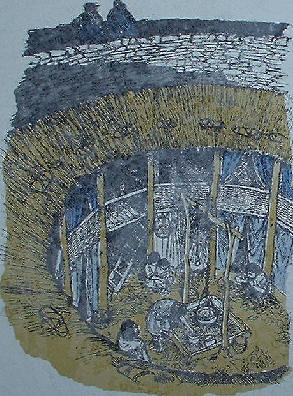
More:
https://www.historic-uk.com/HistoryUK/HistoryofScotland/Brochs-the-Tallest-Prehistoric-Buildings-in-Britain/
4 replies
 = new reply since forum marked as read
Highlight:
NoneDon't highlight anything
5 newestHighlight 5 most recent replies
= new reply since forum marked as read
Highlight:
NoneDon't highlight anything
5 newestHighlight 5 most recent replies
Brochs: The mysterious circular symbols of Scotland (Original Post)
Judi Lynn
Sep 2022
OP
PurgedVoter
(2,680 posts)1. This is a fun visit to one, I love this guys voice!
NJCher
(42,537 posts)2. What beautiful, intriguing photos
I’d like to spend some time near one, seeing what I can pick up.
I visited Scotland and traveled it by car but I don’t recall seeing a broch.
Hekate
(100,132 posts)3. Fascinating. KnR
Karadeniz
(24,725 posts)4. I wonder if these were before chimneys or even a hole in the ceiling...